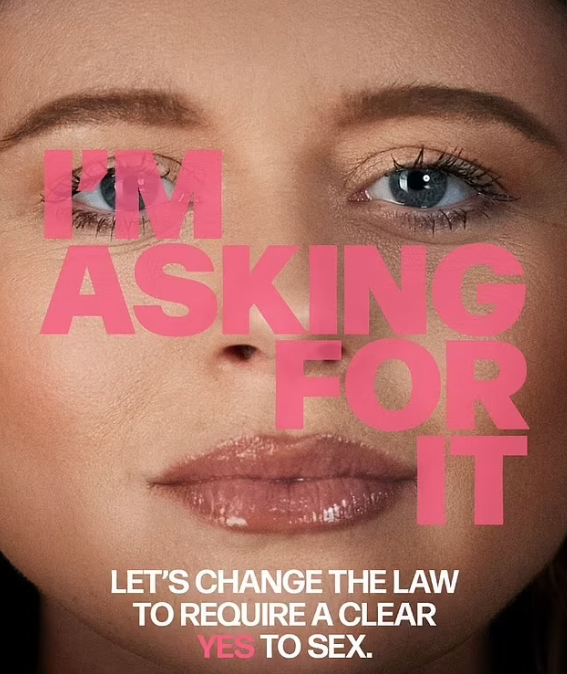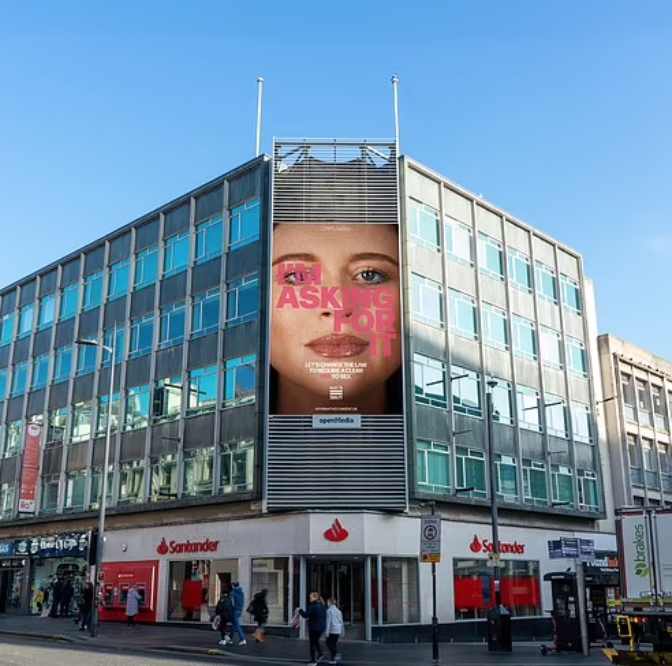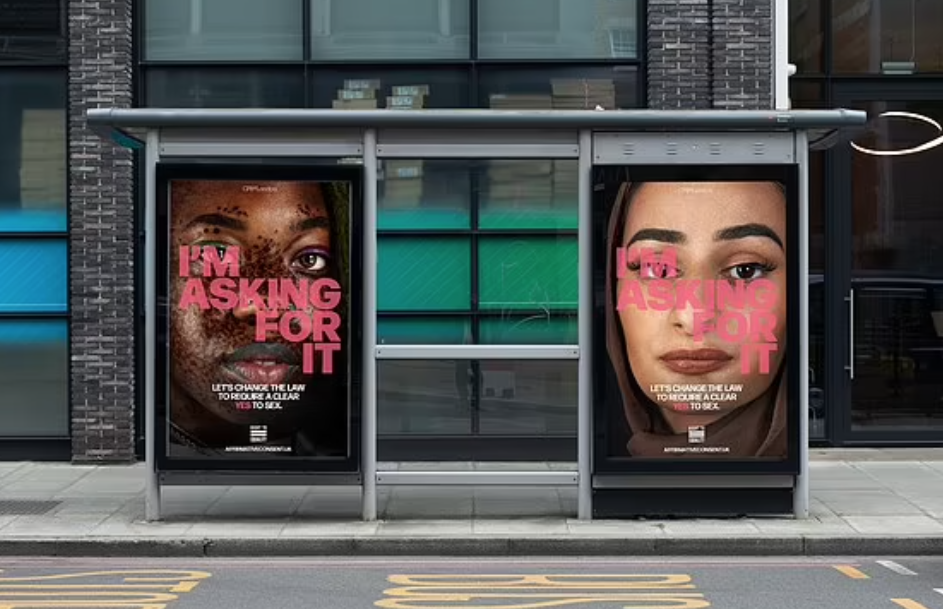Emily Atack has come under fire for her involvement in a “tone-deaf” campaign.
The controversial slogan “I’m asking for it” was written across pictures of the Inbetweeners actress and plastered on billboards across London.
However, the campaign has been branded a huge flop as victims of sexual abuse are feeling “triggered” by the ads.

The campaign is to change the laws on rape and sexual assault and to “flip the narrative” on those reporting the crimes.
The creators of the petition said it was intentionally designed to “draw attention” so that consent is not saying No, but instead saying Yes.
Dr Charlotte Proudman, the founder of Right to Equality and Women in Law’s Advocate of the Year 2023, posted on X: “I’m so excited to unveil our new campaign, in partnership with creative agency CPB and Emily Atack.”
“I’m Asking For It: Let’s change the law to require a clear yes to sex. Right to Equality is campaigning to update the UK’s law on consent to use an affirmative consent model. Sign the petition today!”

Ruby, a sexual abuse survivor who was left horrified after coming across the posters, told Daily Mail: “It’s a horrible slogan.”
“It made me recoil, it threw me right back into the memory of my own assault and hearing my attacker justify it using those words.”
“I understand and support affirmative consent but that statement isn’t something that should be turned into a slogan.”
“Those words reopen deep wounds for victims, it’s not a cute moment like they thought it would be.”

“Those words are still used every day to justify sexual violence. I absolutely want an apology, it’s very short sighted and clearly whoever polls their slogans didn’t do a good enough job.”
“Someone should have foreseen the more than justified backlash. It’s f****ng rancid.”
While the campaign has sparked criticism, others have supported it online, including sexual assault survivor Ellie Wilson.
She tweeted: “I fully support the #ImAskingForIt campaign – the absence of a no is not a yes, consent should be affirmative and enthusiastic. It’s time to update the law so it’s modern and doesn’t place the onus on victims.”
I fully support the #ImAskingForIt campaign – the absence of a no is not a yes, consent should be affirmative and enthusiastic. It’s time to update the law so it’s modern and doesn’t place the onus on victims. https://t.co/fN2OoYuP25
— Ellie Wilson (@ellieokwilson) March 4, 2024
Helen James, CEO of CPB Europe, said in a statement: “I’m Asking for It is an intentionally provocative body of work.
“We want to stop people in their tracks, get them thinking about how women are often treated by society and the courts – and the excuse used too often that they were ‘asking for it’ – and then flip the narrative: What she’s actually asking for is legal change.’
A spokesperson for Right to Equality also said: “This slogan is intentionally designed to draw attention to ‘did she say Yes’.
“We want to stop people in their tracks, get them thinking about how women are often treated by society and the courts – and the excuse used too often that they were ‘asking for it’ – and then flip the narrative: She’s asking for legal change.
“Far too often consent is assumed because she didn’t say no. Absence of a no doesn’t equate to yes, despite one fifth of people believing that.
“Since Sweden introduced an affirmative consent model, convictions for rape increased by 75 per cent. In this country, less than two per cent of rape cases result in charge and rape is becoming decriminalised. Further, there is no definition of rape or consent in the family courts. Current consent laws are 20 years out of date.
“Instead of putting the onus on victims to show they didn’t consent, we want to ask the defendant what steps he took to ensure she wanted and said yes sex. Did she literally ask for it?
“When we spoke with survivors while crafting the slogan, this subversion of blame was seen as a valuable tool to bring awareness to the importance of actually asking for consent.”

